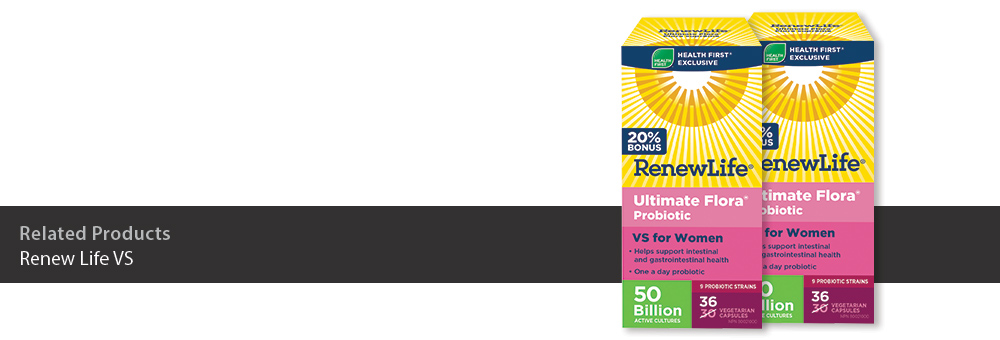

Balancing Women’s Microbes
Surveys suggest that about 75% of women develop thrush or a yeast infection (vulvovaginal candidiasis) at least once in their lifetime.[1] The yeast organism, Candida Albicans is primarily responsible for these infections and is caused by dysbiosis, a condition that occurs when there is an imbalance of good to bad bacteria in the body. Dysbiosis can be triggered by many factors such as antibiotics, poor diet, stress, birth control pills and other medications.
Normal vaginal microbiota is dominated by the lactic acid and hydrogen peroxide producing Lactobacillus species which help to maintain a low vaginal pH.[2] Lactobacilli and their antimicrobial and anti-inflammatory products along with components of the epithelial mucosal barrier provide an effective first line defense against invading pathogens including bacterial vaginosis, aerobic vaginitis-associated bacteria, viruses, fungi and protozoa.[3]
While taking an over the counter anti-fungal medication may temporarily help with the symptoms of a yeast infection, the issue stems from dysbiosis. The key to overcoming the infection is to look at the root cause of the issue such as a diet and lifestyle habits and rebalance the ratio of good to bad bacteria in the body. Taking a targeted probiotic will go a long way to getting things back into balance.
Renew Life® Ultimate Flora® VS for Women is a daily multi-strain women’s probiotic blend that supports women’s gut and overall health and provides 50 billion live bacterial cultures in a convenient once a day capsule. It contains 9 different strains of live bacteria, 7 of which are lactobacilli. These lactobacilli make up 45 billion active cultures in the formula while 2 bifidobacteria strains make up the remaining 5 billion cultures. It is contained in acid-resistant vegetarian capsules to help protect the live bacteria from harsh stomach acids.
If you are suffering from Candida, here are some additional recommendations that may help:
- Eliminate or minimize the use of antibiotics if at all possible (consult your health care provider about alternatives).
- Cleanse your system with anti-fungal herbs. There are cleansing kits on the market that incorporate anti-fungal herbs.
- Increase your fibre consumption to assist in healthy elimination.
- Change your diet to one that will not encourage growth of Candida. The Candida diet is a low-sugar, anti-inflammatory diet that promotes good gut health and eliminates the sugars that feed Candida. The diet includes non-starchy vegetables, low-sugar fruits, non-glutinous grains, healthy proteins, some dairy products, nuts and seeds, fermented foods, plus lots of herbs, spices, fats and oils. https://www.thecandidadiet.com/
- Drink plenty of clean, purified water.
- Enhance digestion by eating more alkaline and raw foods (seasonally), chewing thoroughly and taking digestive enzymes with meals.
- Improve immune function by stimulating lymph flow through exercise and deep breathing.
- De-stress your life with activities such as walking, yoga, meditation, deep breathing and even hug a cat if you can, their purr is very therapeutic!
References:
[1] Denning, D. et al. (2018). Global burden of recurrent vulvovaginal candidiasis: a systematic review. Available: https://badgut.org/information-centre/a-z-digestive-topics/constipation/. Last accessed 18 Oct 19.
[2] Mitchell, C. et al. (2016). Hydrogen-peroxide producing lactobacilli are associated with lower levels of vaginal IL1β, independent of bacterial vaginosis. Available: https://www.ncbi.nlm.nih.gov/pmc/articles/PMC4520248/. Last accessed 18 Oct 19.
[3] Amabebe E. et al. (2018). The Vaginal Microenvironment: The Physiologic Role of Lactobacilli. Available: https://www.ncbi.nlm.nih.gov/pmc/articles/PMC6008313/. Last accessed 18 Oct 19.

